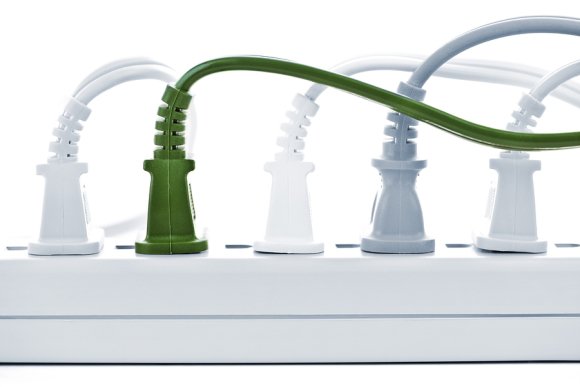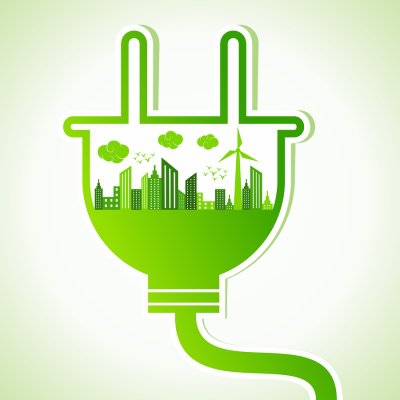-
Understanding How Circuit Breakers Work
Your circuit breaker is one of the most essential parts of your electric supply. This amazing innovation delivers power to your outlets and appliances, while making sure that you are protected from sudden electrical surges. In the event that too much electricity is sent through your home wiring, your circuit breaker will automatically shut off power to that area. In the event that you experience trouble with your electrical system, a residential electrician serving San Jose can help restore your circuit breaker to peak operating condition. Here is a complete guide to how circuit breakers work in the home.

Power Distribution Grid
Your home’s electricity comes from a device called a power distribution grid. As electricity is sent into your wiring, it travels through an electrical circuit that contains a hot wire, a neutral wire, and a ground. This system allows the electrical current from the power distribution grid to travel safely through your wiring. Your circuit breaker is at the central point of this alternating current.Resistance
Resistance is another fundamental term that is needed to understand your circuit breaker. While the power distribution grid sends a constant level of electricity through your home, each one of your appliances put up their own amount of resistance to the electrical charge. Resistance is what allows each of your appliances to operate. From your light bulbs to your refrigerator, every appliance that is connected to your wiring places its own amount of resistance against the electrical current that is flowing in your home.Circuit Protection
In the event that your current jumps above the resistance level that an appliance can handle, your circuit breaker will prevent damage to your system. The excessive electrical current will cause your circuit breaker to heat up, resulting in a blown fuse or flipped switch. When this occurs, you may need to replace your fuse, flip over your switch, or contact your local electrician for repairs. -
Choosing a Surge Protector
As a homeowner, there are several steps that you can take to protect your appliances from electrical surges. Along with your circuit breaker, you can also choose to install surge protectors in your building. While some types of surge protectors plug into your outlets, other types of surge protectors connect directly to your electrical wiring. These surge protectors are known as primary surge protectors. In the event of a sudden electrical surge, a primary surge protector will prevent excess voltage from entering your electric panels. Power strips and other smaller surge protection devices are known as secondary surge protectors. Your electrician serving San Jose can help you determine what type of surge protection system will be best for your electric panel . After you install surge protectors in your home, you will have the peace of mind that comes from knowing that your appliances are protected from electrical harm.

-
Manage Your Electrical Supply with a Home Generator in San Jose
During the winter season, storms and freezing temperatures could put your neighborhood at risk for a blackout. If you are seeking a great way to ensure that your electrical supply is not cut of in the event of an emergency, you may want to invest in a home generator. A generator will provide your appliances and circuit breakers with power, even if the municipal supply is cut off. An electrician serving San Jose can help you choose a generator that is suited to the needs of your home. Here is a quick overview of how a home generator can help you manage your electrical supply.

Types of Generators
The electricians at an electrical company can help you decide between two main types of generators to power your home. You will have your choice of either a portable generator or a standby generator. A standby generator will be connected directly to the electric panel of your home, and will provide your home with power in the event that your main electrical supply is shut off.How Generators Work
A home generator is designed to provide you with uninterrupted power during an outage. When the electrical supply to your home is cut off, the generator will automatically begin running. Using an internal combustion engine, the generator will create its own power source. To ensure that your generator will be able to last throughout a power outage, it is important to make sure that you have enough fuel to power the engine.Benefits of Generators
There are many benefits to installing a standby or portable generator in your home. When you choose to install a generator, you can rest assured that you will never experience an interruption in power. For this reason, a generator is a terrific choice for any household that requires the uninterrupted use of power. -
Troubleshooting Electrical Problems in the Home
As a homeowner, there are several basic electrical problems that you may encounter at home. In order to troubleshoot electrical problems, you can use a device called a voltage meter. This device will allow you to determine whether electrical current is running or not. For example, the voltage meter can help you find a problem in a light fixture, electrical outlet, or electrical wiring system. If you are having problems with your electrical supply, do not hesitate to contact an electrician serving San Jose . Professional electricians have the knowledge and skills needed to diagnose and repair all types of home electrical issues. Whether you are having problems with your electric panes or junction box, your electrician will be able to restore your electrical system to great working shape. For a closer look at how to troubleshoot electrical problems in the home, watch this video from eHow.
RECENT POSTS
categories
- Uncategorized
- Delta Electric
- Commercial Electrical
- Residential Electrical
- Electric Circuits
- Dedicated Circuits
- Circuit Breakers
- Electrical Panels
- Electrical Wiring
- Safety Inspections
- copper wires
- Electrician San Jose
- Trained Electricians
- Electrical Services San Jose
- Malfunctioning Electrical Outlets
- Circuit Breaker
- Grounding
- safety
- Flickering Lights
- Arc Fault Breakers
- electrical system
- Aluminum Wiring
- Circuit Interrupters
- House Surge Protection
- Zinsco Panel Warnings
- Wiring Conversion
- GFCI outlet
- professional electrician
- Knob-and-Tube Wiring
- modern home electrical system
- Fuses
Archives
2024
2023
2018
2017
- December (4)
- November (4)
- October (5)
- September (4)
- August (4)
- July (4)
- June (4)
- May (4)
- April (4)
- March (3)
- February (4)
- January (3)
2016
- December (3)
- November (4)
- October (4)
- September (4)
- August (4)
- July (4)
- June (4)
- May (4)
- April (4)
- March (4)
- February (4)
- January (4)
2015
- December (4)
- November (4)
- October (4)
- September (4)
- August (3)
- July (4)
- June (4)
- May (3)
- April (4)
- March (4)
- February (2)
2014
- December (3)
- November (4)
- October (4)
- September (6)
- August (2)
- July (3)
- May (2)
- April (1)
- March (2)
- February (1)
- January (1)

